Difference between revisions of "Monoskop"
(1990s) |
|||
| Line 15: | Line 15: | ||
Old Boys Network 1997 100 Anti-Theses of Cyberfeminism.jpg|link=Cyberfeminism|[[Cyberfeminism|Technofeminism, cyberfeminism, xenofeminism]] | Old Boys Network 1997 100 Anti-Theses of Cyberfeminism.jpg|link=Cyberfeminism|[[Cyberfeminism|Technofeminism, cyberfeminism, xenofeminism]] | ||
| − | |||
| − | |||
Ehlers_Jeannette_2013_Whip_It_Good_photo_Casper_Maare.jpg|link=Decolonial aesthetics|[[Decolonial aesthetics]] | Ehlers_Jeannette_2013_Whip_It_Good_photo_Casper_Maare.jpg|link=Decolonial aesthetics|[[Decolonial aesthetics]] | ||
| Line 25: | Line 23: | ||
The_worlds_protected_areas_2015.jpg|link=Anthropocene|[[Degrowth]] | The_worlds_protected_areas_2015.jpg|link=Anthropocene|[[Degrowth]] | ||
| + | |||
| + | Bibliotecha_Stuff_Youll_need.jpg|link=Free software|[[Free software|Free software, libre culture]] | ||
Radio_Punctum_.jpg|link=Community radio|[[Community radio]] | Radio_Punctum_.jpg|link=Community radio|[[Community radio]] | ||
Revision as of 14:13, 2 January 2024
Welcome to Monoskop, a wiki for arts and studies.
Monoskop Log
You are welcome to follow and join us on mastodon at post.lurk.org/@monoskop.
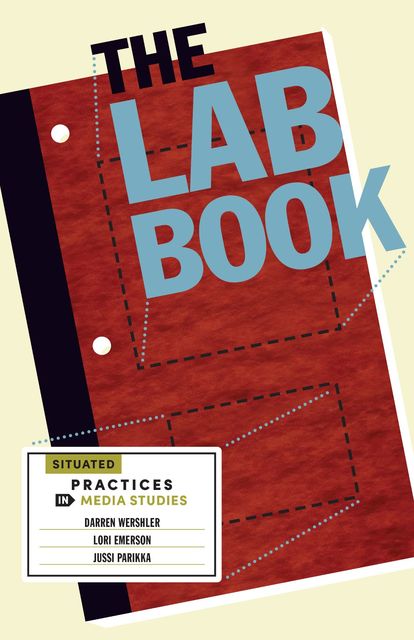
“From the “Big Science” of Bell Laboratories to the esoteric world of séance chambers to university media labs to neighborhood makerspaces, places we call “labs” are everywhere—but how exactly do we account for the wide variety of ways that they produce knowledge? More than imitations of science and engineering labs, many contemporary labs are hybrid forms that require a new methodological and theoretical toolkit to describe. The Lab Book investigates these vital, creative spaces, presenting readers with the concept of the “hybrid lab” and offering an extended—and rare—critical investigation of how labs have proliferated throughout culture.
Organized by interpretive categories such as space, infrastructure, and imaginaries, The Lab Book uses both historical and contemporary examples to show how laboratories have become fundamentally connected to changes in the contemporary university. Its wide reach includes institutions like the MIT Media Lab, the Tuskegee Institute’s Jesup Wagon, ACTLab, and the Media Archaeological Fundus. The authors cover topics such as the evolution and delineation of lab-based communities, how labs’ tools and technologies contribute to defining their space, and a glossary of key hybrid lab techniques.”
Publisher University of Minnesota Press, March 2022
ISBN 9781517902179, 1517902177
x+333 pagesProject website
Publisher
WorldCatHTML (Manifold)
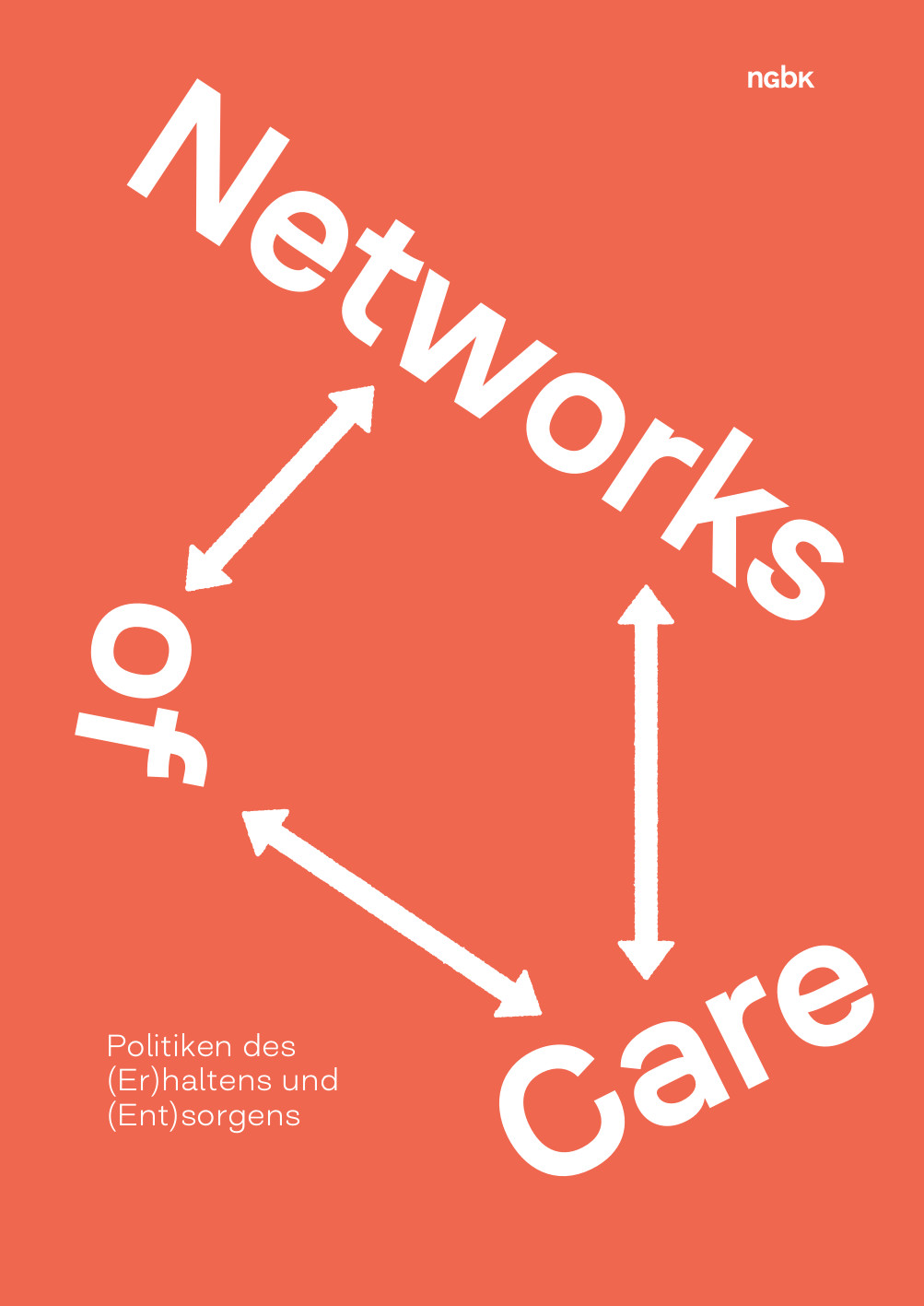
“In 2021, Networks of Care offered a platform at the nGbK enabling an exchange of ideas and information between practitioners and experts concerning strategies for dealing with artistic estates, private and public archives, or idle documentation volumes. The present contributions reflect—in their theoretical analyses and also partly fleeting or historical thoughts, notes, and reflections and through their polyphony and contradictoriness—the fact that practices of preserving and discarding are always also political and must be understood principally as unfinished processes of continuous selecting, deciding, translating, transferring, actualizing, and transforming. The publication concludes with a preliminary interim result and a proposal for next steps regarding these structural and cultural-political challenges.”
With contributions by Dušan Barok, Nanne Buurman, Amalia Calderòn, Mela Dávila Freire, Annet Dekker, Lukas Fuchsgruber, Michael Hiltbrunner, Megan Hoetger, Bettina Knaup, Christin Lahr, Anne Luther, Katalin Krasznahorkei, Laurence Rassel, Peter Rehberg, Elske Rosenfeld, Friederike Schäfer, Anna Schäffler, Olga Schubert, Cornelia Sollfrank, Ingrid Wagner, and Mark Waugh.
Publisher neue Gesellschaft für bildende Kunst (nGbK), Berlin, May 2022
ISBN 9783938515952
178 pages
Trading Zones: Camera Work in Artistic and Ethnographic Research (2022)
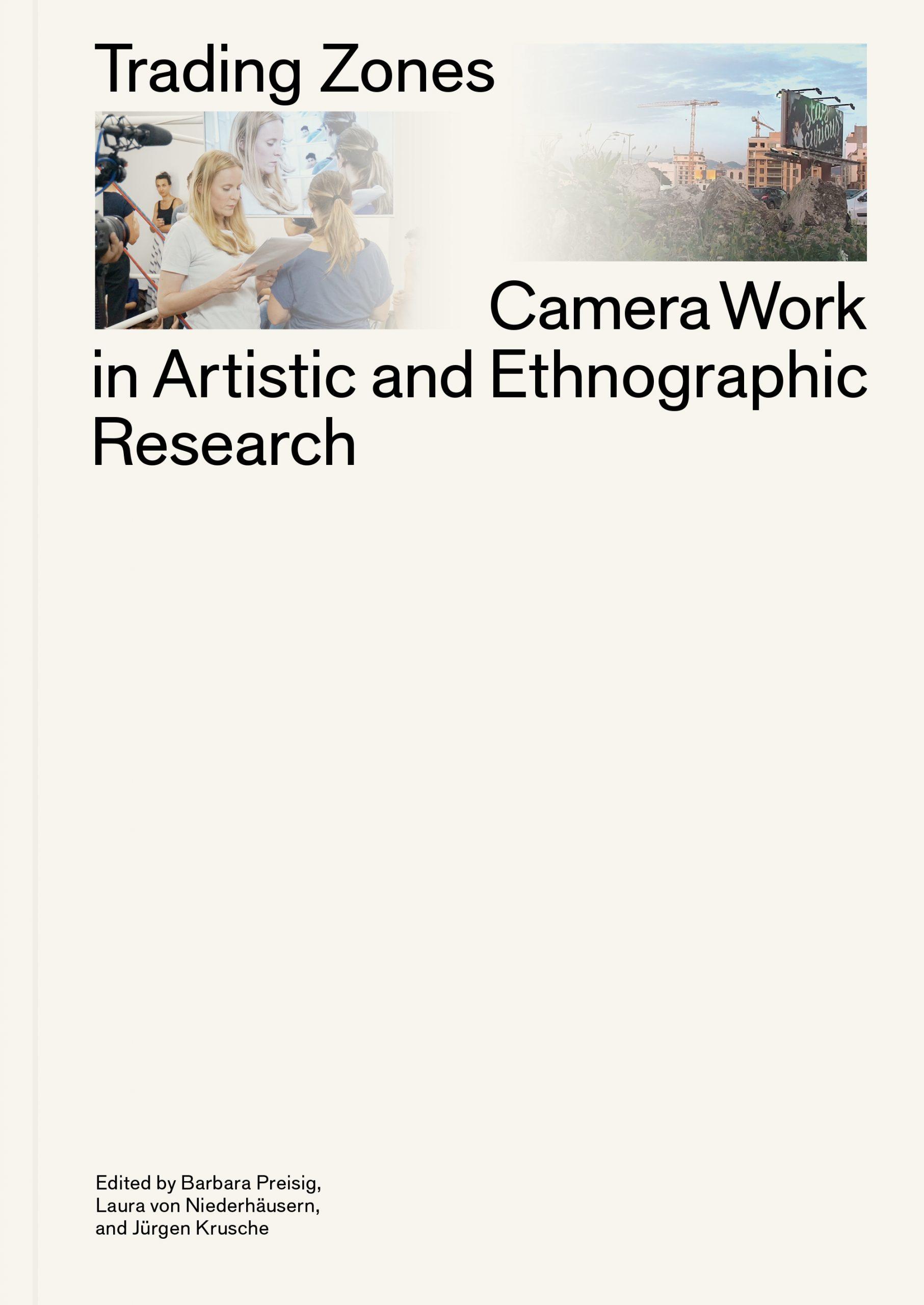
“This book introduces camera-based practices at the intersections of artistic and ethnographic research that critically examine the means of their own production and social embeddedness. In shared practices such as recording in the field, editing in post-production and modes of presentation, the camera is involved as an agent rather than an innocent device. How does the camera grapple with the invisible and how does it reveal what the camerawoman is unable to see? How do films, videos and photographs provide access to vulnerable knowledges and what presentation formats can extend the linearity of narration?
Taking account of their own situatedness and the limits of representation, many of this book’s contributors attempt to speak with — rather than about — the other. These negotiations appearing in the featured projects open up a shared field of artistic and ethnographic inquiry, whose potential — for experiments and reflections — is far from exhausted.”
Contributions by Sepideh Abtahi, Shirin Barghnavard, Laura Coppens, Louis Henderson, Heidrun Holzfeind, Mina Keshavarz, Daniel Kötter, Jürgen Krusche, Bärbel Küster, Bina Elisabeth Mohn, Laura von Niederhäusern, Uriel Orlow, Barbara Preisig, Rani al Raji, Nahid Rezaei, Anette Rose, Sahar Salahshoori, Christoph Schenker, Amira Solh, Lena Maria Thüring, Zheng Mahler.
Edited by Barbara Preisig, Laura von Niederhäusern, and Jürgen Krusche
Publisher Archive Books, Berlin
Creative Commons BY-NC-ND 4.0 license
ISBN 9783948212827
164 pages
Dora García (ed.): If I Could Wish for Something (2021)
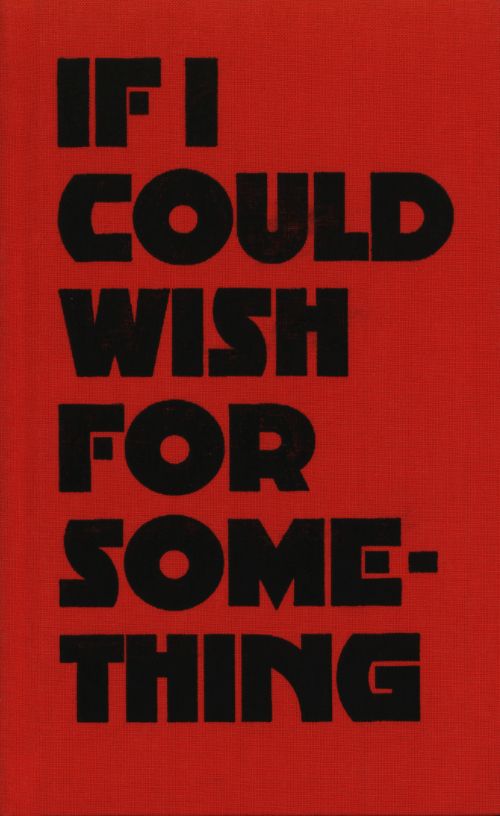
“In 1930, German film composer Friedrich Hollaender wrote “Wenn ich mir was wünschen dürfte”, famously performed by Marlene Dietrich. It inspired the foundation of Dora García’s exhibition ‘If I Could Wish for Something’ and this accompanying publication. The song serves as a powerful expression of a complex concept: sadness as political strength. García in turn connects this concept with women’s struggles for emancipation. Disappointed in the promise made to them by revolutionary movements, which for now remains unfulfilled, women are seeking to transform this feeling to overcome the temptation of victimhood and open up the possibility of an ethical encounter. ”
With texts by Antonio Cataldo, Saddie Choua, Paloma Contreras Lomas, Dora García, Agnieszka Gratza, Carla Lamoyi, Hilde Methi, Andrea Valdés, Sayak Valencia, and Pieternel Vermoortel.
Publisher Fotogalleriet, Oslo, and Netwerk Aalst, Aalst, 2021
ISBN 9789081080064, 9081080067
222 pages
via KHiO
Adriana N. Helbig: Hip-Hop Ukraine: Music, Race, and African Migration (2014)
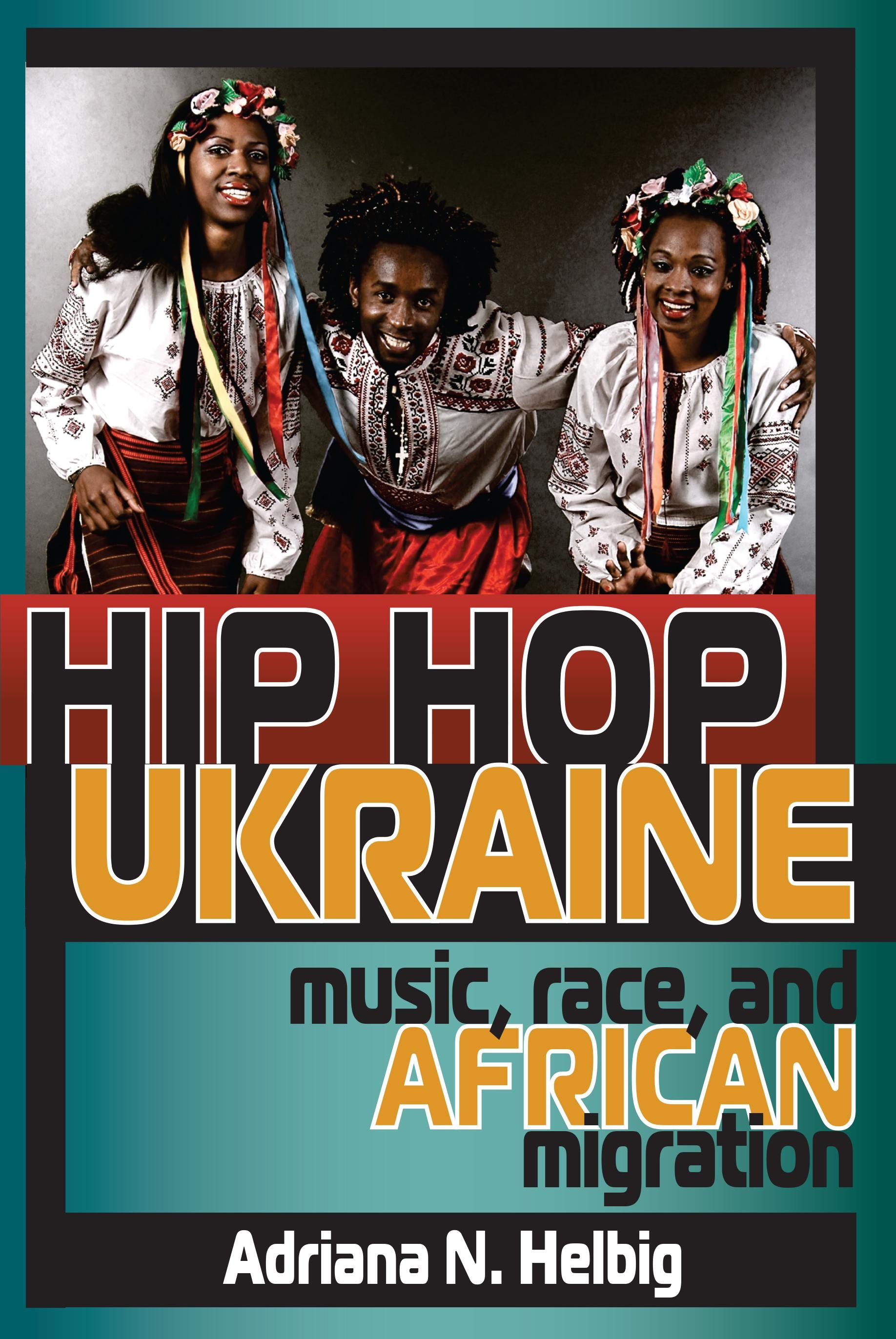
“In Hip Hop Ukraine, we enter a world of urban music and dance competitions, hip hop parties, and recording studio culture to explore unique sites of interracial encounters among African students, African immigrants, and local populations in eastern Ukraine. Adriana N. Helbig combines ethnographic research with music, media, and policy analysis to examine how localized forms of hip hop create social and political spaces where an interracial youth culture can speak to issues of human rights and racial equality. She maps the complex trajectories of musical influence—African, Soviet, American—to show how hip hop has become a site of social protest in post-socialist society and a vehicle for social change.”
Publisher Indiana University Press, Bloomington, IN, 2014
ISBN 9780253012043, 025301204X
xix+233 pagesInterview with author: Amanda Jeanne Swain (New Books Network, 2014, podcast).
Reviews: Kevin C. Holt (Current Musicology, 2014), Michael C. Thornton (Slavonic and East European Review, 2015), Mark Alan Rhodes II (Social & Cultural Geography, 2015), Anna Oldfield (Popular Music and Society, 2015), Tony Mitchell (Slavic Review, 2016), Kendra Salois (Ethnomusicology, 2017).
MARCH, journal of art and strategy (2020–)
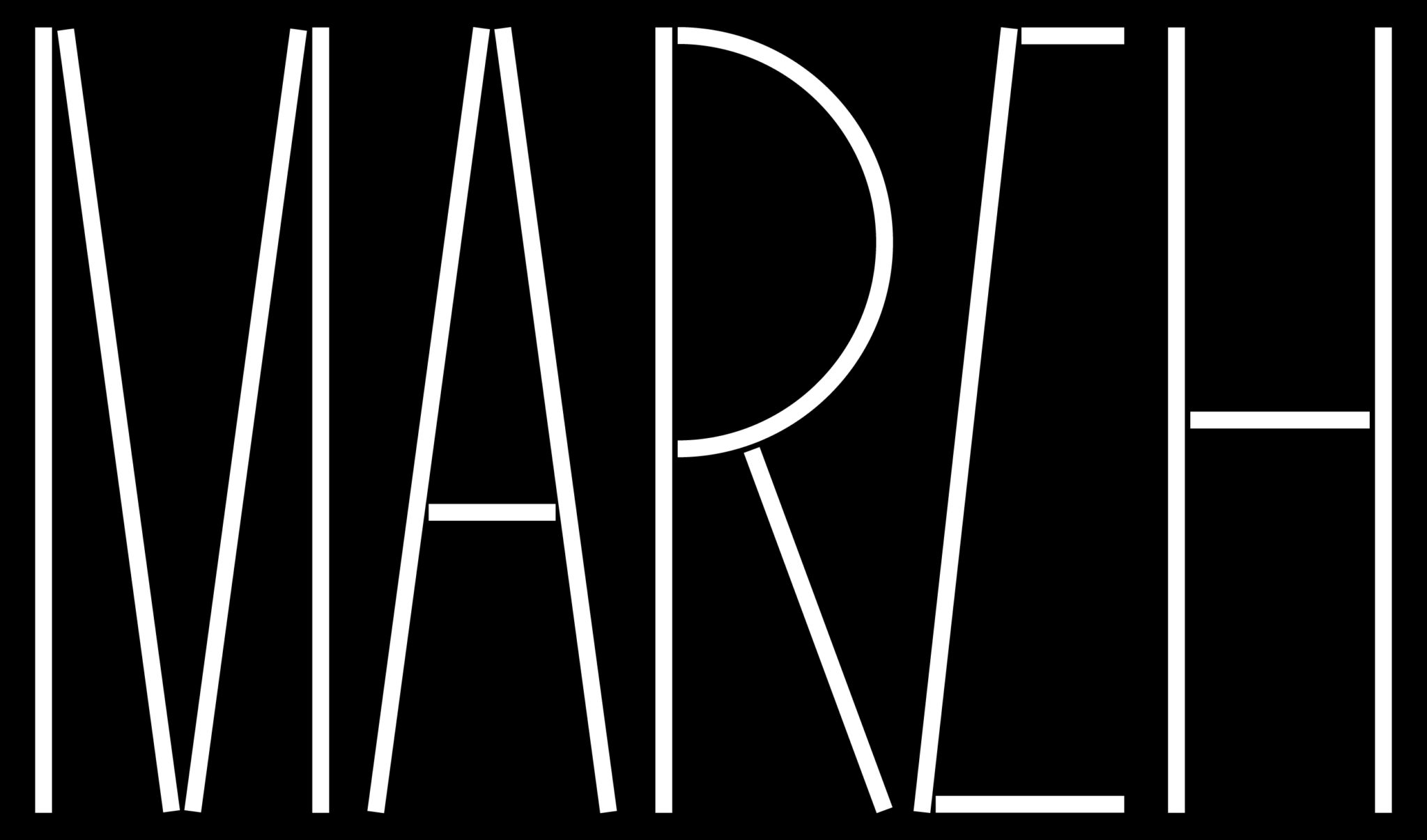
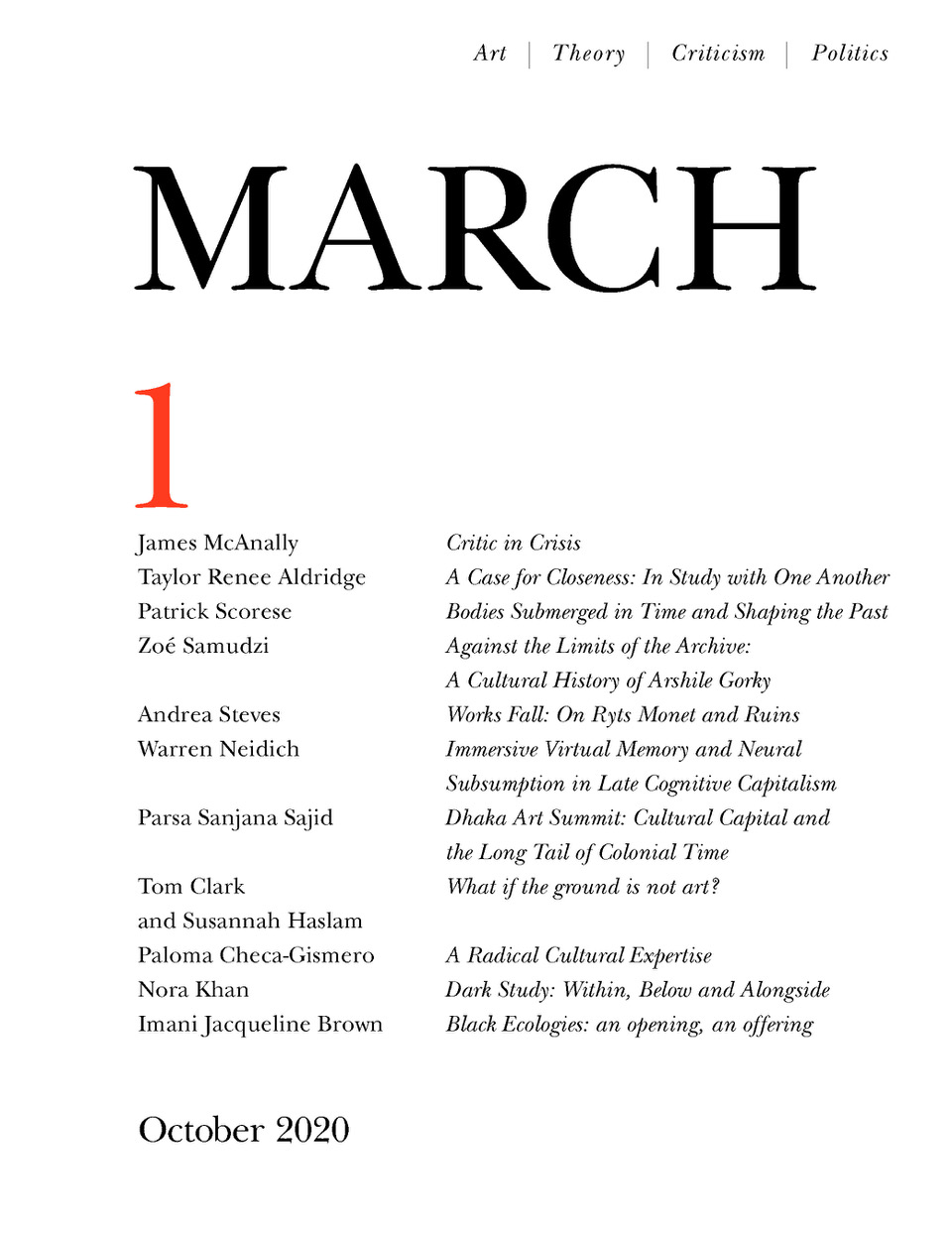
“MARCH embraces publishing as an act of protest to address the critical social and political issues of our time. MARCH emerges at a moment of deepening institutional crisis and is intent on advancing new forms of publication, critique, and public action. We are a partisan publication: we initiate, articulate, advance, and defend prefigurative ideas about what art is, could and should be. We believe in the latent potential critique carries to transform our art worlds, our institutions, our means of expression and experimentation, and ourselves. We are con-temporary, with and in our time—an archive of the present and proposition towards the future—where our ideas, actions and form embodies this insurrection.
MARCH features an annual print edition alongside an active online platform commissioning essays, interviews, and experimental critical writing with a global perspective. ”
Edited by Sarrita Hunn, James McAnally, et al.
Interview with editors: Mela Dávila Freire (A*Desk, 2021, EN/ES/CA).
Issues, features:
Dispatches (2020)
Issue 1 (2020-2021)
Issue 2: Black Ecologies (ed. Imani Jacqueline Brown, 2021-2022)
Publishing as Protocol (eds. with Constant and Vessel, 2021-2023)
Conversations on Sound and Power (ed. Sonic Insurgency Research Group, 2021-2022)
Multidirectional Memory (2022-)
Les Back: Academic Diary, or Why Higher Education Still Matters (2016)
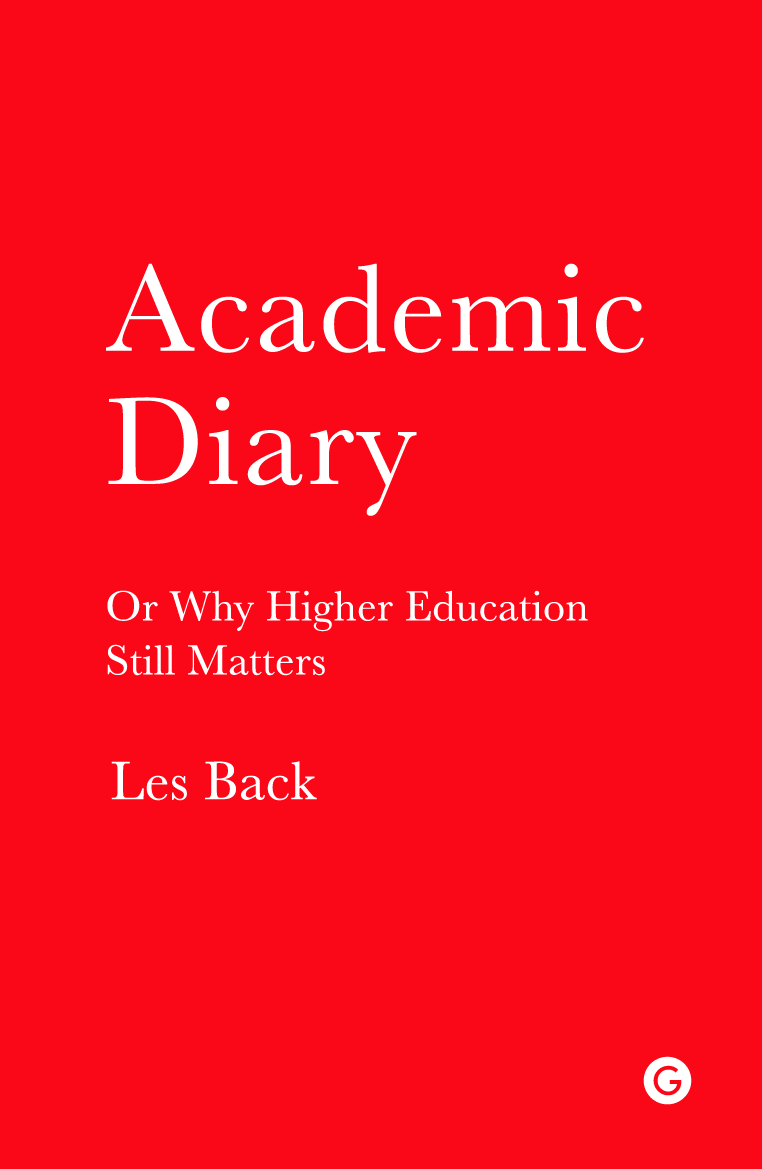
“Les Back has chronicled three decades of his academic career, turning his sharp and often satirical eye to the everyday aspects of life on campus and the larger forces that are reshaping it. Presented as a collection of entries from a single academic year, the diary moves from the local to the global, from PowerPoint to the halls of power. With entries like Ivory Towers and The Library Angel, these smart, humorous and sometimes absurd campus tales not only demystify the opaque rituals of scholarship, they offer a personal route into the far-reaching issues of university life. From the impact of commercialisation and fee increases to measurement and auditing research, the diary offers a critical diagnosis of higher education today. At the same time, it is a passionate argument for the life of the mind, the importance of collaborative thinking and why scholarship and writing are still vital for making sense of our troubled and divided world.”
Publisher Goldsmiths Press, London, 2016
Open access
ISBN 9781906897581, 1906897581
xiii+258 pagesReviews: Rose Deller (LSE Review of Books, 2016), Andrew Robinson (Times Higher Education, 2016), Rosalind Gill (Int’l J Politics, Culture, and Society, 2018), Bridget Hanna.
Book website (archived)
Publisher
WorldCat
Semiotext(e), 5(2): SF (1989) [EN, IT]
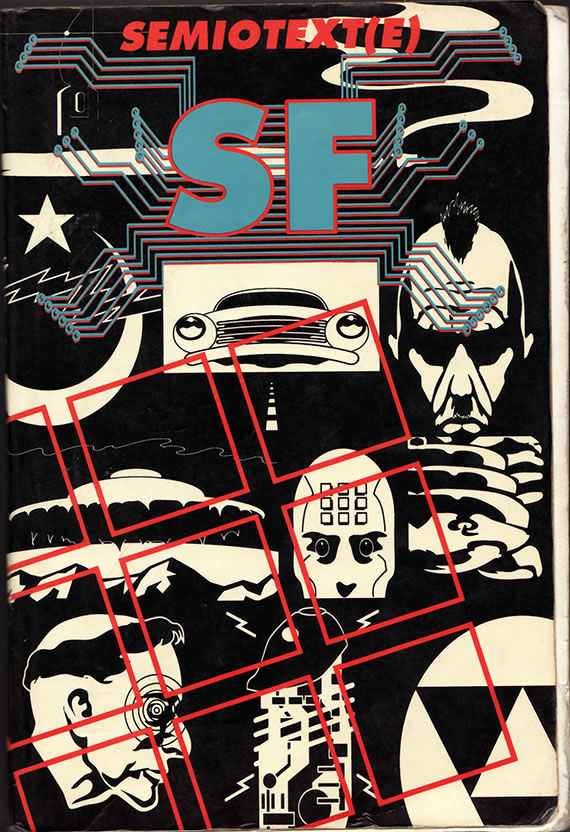
“An outsider sci-fi anthology. Varied and largely critically-acclaimed material by the obscure, the overexposed and the justly renowned.”
Edited by Rudy Rucker, Peter Lamborn Wilson, and Robert Anton Wilson
Publisher Autonomedia, New York, 1989
ISBN 0936756438, 9780936756431
384 pagesReviews: P. Leggiere (Beyond Cyberpunk, c.1991), Todd Mason (2013).
Semiotext(e), 5(2): SF (English, 12 MB)
Strani attrattori: antologia di fantascienza radicale (Italian, trans. Fabio Gadducci and Mirko Tavosanis, 1996, EPUB)
Whitney Trettien: Cut/Copy/Paste: Fragments from the History of Bookwork (2021)
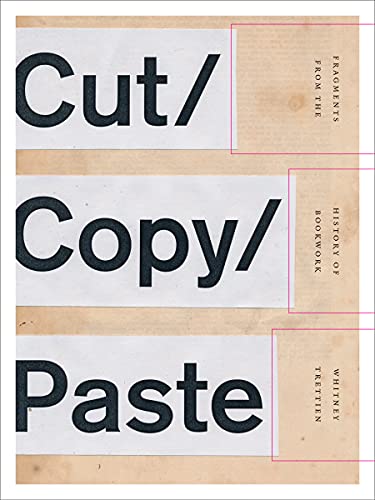
“In Cut/Copy/Paste, Whitney Trettien journeys to the fringes of the London print trade to uncover makerspaces and collaboratories where paper media were cut up and reassembled into radical, bespoke publications. Bringing these long-forgotten objects back to life through hand-curated digital resources, Trettien shows how early experimental book hacks speak to the contemporary conditions of digital scholarship and publishing. As a mixed-media artifact itself, Cut/Copy/Paste enacts for readers what Trettien argues: that digital forms have the potential to decenter patriarchal histories of print.
From the religious household of Little Gidding—whose biblical concordances and manuscripts exemplify protofeminist media innovation—to the queer poetic assemblages of Edward Benlowes and the fragment albums of former shoemaker John Bagford, Cut/Copy/Paste demonstrates history’s relevance to our understanding of current media. Tracing the lives and afterlives of amateur “bookwork,” Trettien creates a method for identifying and comprehending hybrid objects that resist familiar bibliographic and literary categories. In the process, she bears witness to the deep history of radical publishing with fragments and found materials.
With many of Cut/Copy/Paste’s digital resources left open for additions and revisions, this book reimagines our ideas of publication while fostering a spirit of generosity and inclusivity.”
Publisher University of Minnesota Press, Dec 2021
Creative Commons BY-NC-ND 4.0 International License
ISBN 9781517904098, 1517904099
328 pagesHTML (Manifold)
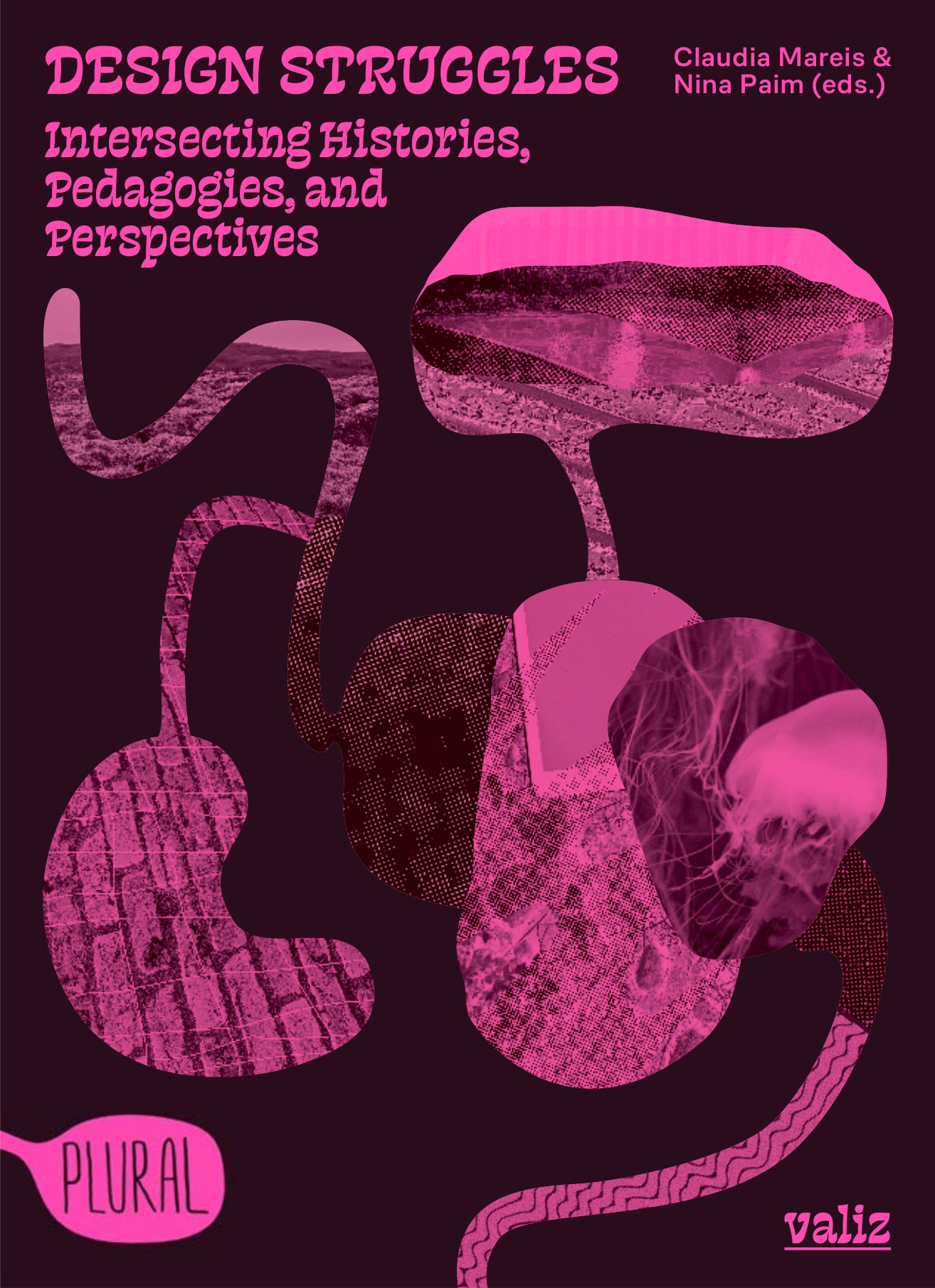
“Design Struggles critically assesses the ways in which the design field is involved in creating, perpetuating, promoting and reinforcing injustice and inequality in social, political, economic, cultural and ecological systems. This book shows how this entanglement arose from Eurocentric and neoliberal thinking. The voices and practices represented here propose to question and disrupt the discipline of design from within, by problematizing the very notions of design. They aim to do so by generating new, anti-racist, post-capitalist, queer-feminist, environmentally conscious and community-based ideas on how to transform it. In this way, Design Struggles strives to forge sustainable, new practices that challenge the status quo and amplify underrepresented voices, both in the world of design, as well as beyond.
In order to reimagine design as an unbound, ambiguous, and unfinished practice, this publication gathers a diverse array of perspectives, ranging from social and cultural theory, design history, design activism, sociology, anthropology, critical and political studies, with a focus on looking at design through the intersections of gender, race, ethnicity, culture, class, and beyond. The book combines the latest comprehensive insights (rooted in design practices) with engaging and accessible storytelling. In doing so, Design Struggles brings together an urgent and expansive array of voices and views, representing those engaged in struggles with, against or around design.”
Contributors: Danah Abdulla, Tanveer Ahmed, Zoy Anastassakis, Ahmed Ansari, Brave New Alps, Johannes Bruder, Cheryl Buckley, Sria Chatterjee, Alison J. Clarke, Sasha Costanza-Chock, Paola De Martin, Decolonising Design, depatriarchise design, Bianca Elzenbaumer, Arturo Escobar, Kjetil Fallan, Griselda Flesler, Corin Gisel, Matthew Kiem, Claudia Mareis, Ramia Mazé, Tania Messell, Anja Neidhardt, Nan O’Sullivan, Maya Ober, Nina Paim, Luiza Prado de O. Martins, Mia Charlene White.
Publisher Valiz, Amsterdam, May 2021
Plural series, 3
Creative Commons BY-NC-ND 3.0 License
ISBN 9789492095886, 9492095882
411 pagesReview: Saraleah Fordyce (Design and Culture, 2021).
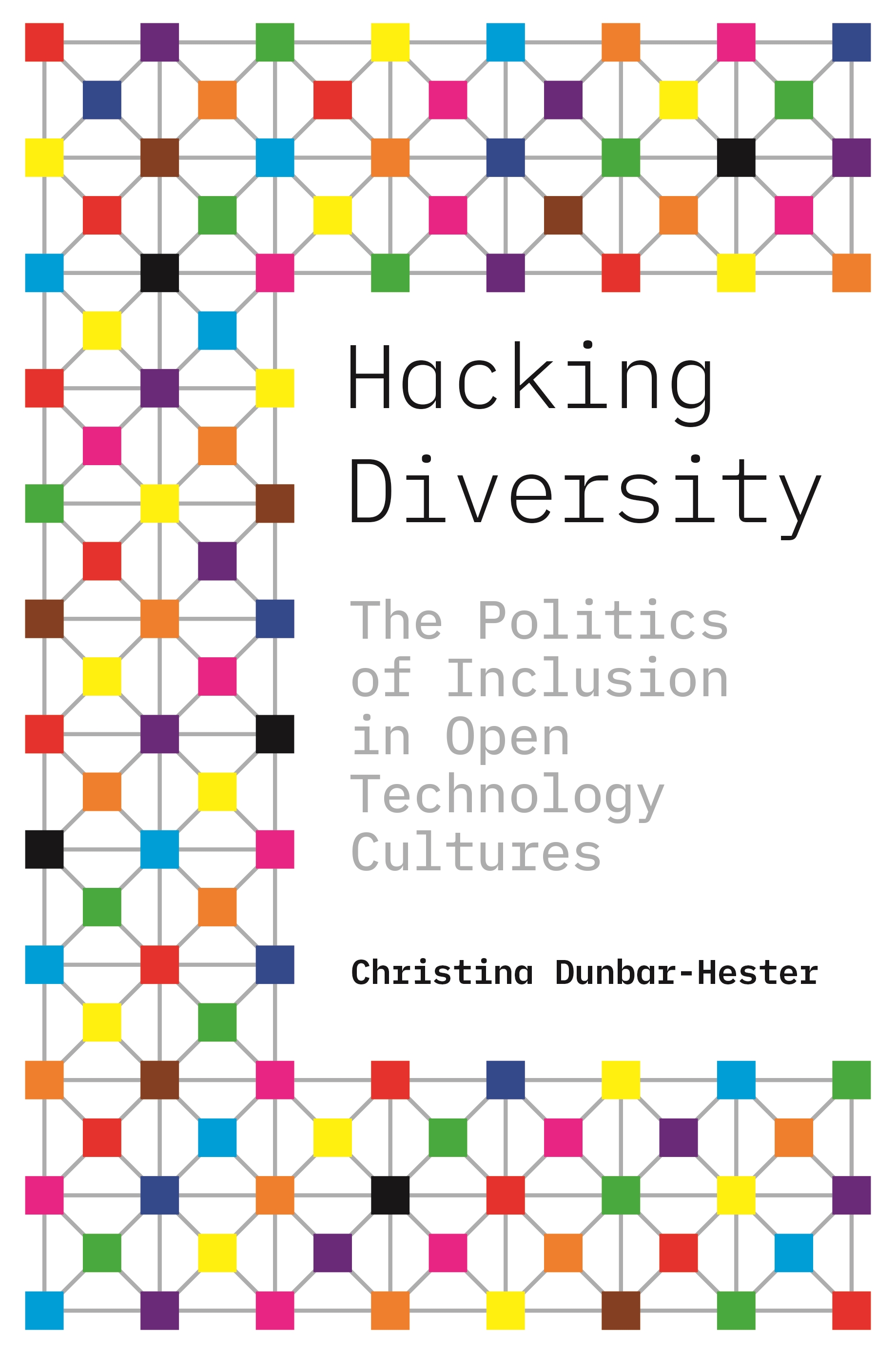
“A firsthand look at efforts to improve diversity in software and hackerspace communities.
Hacking, as a mode of technical and cultural production, is commonly celebrated for its extraordinary freedoms of creation and circulation. Yet surprisingly few women participate in it: rates of involvement by technologically skilled women are drastically lower in hacking communities than in industry and academia. Hacking Diversity investigates the activists engaged in free and open-source software to understand why, despite their efforts, they fail to achieve the diversity that their ideals support.
Christina Dunbar-Hester shows that within this well-meaning volunteer world, beyond the sway of human resource departments and equal opportunity legislation, members of underrepresented groups face unique challenges. She brings together more than five years of firsthand research: attending software conferences and training events, working on message boards and listservs, and frequenting North American hackerspaces. She explores who participates in voluntaristic technology cultures, to what ends, and with what consequences. Digging deep into the fundamental assumptions underpinning STEM-oriented societies, Dunbar-Hester demonstrates that while the preferred solutions of tech enthusiasts—their “hacks” of projects and cultures—can ameliorate some of the “bugs” within their own communities, these methods come up short for issues of unequal social and economic power. Distributing “diversity” in technical production is not equal to generating justice.
Hacking Diversity reframes questions of diversity advocacy to consider what interventions might appropriately broaden inclusion and participation in the hacking world and beyond.”
Publisher Princeton University Press, 2020
Princeton Studies in Culture and Technology series
ISBN 9780691182070, 0691182078
xi+271 pagesReviews: Jenna P. Carpenter (Tech & Society, 2021), Rebecca Ortenberg (Lady Science, 2020), Samantha Shorey (International Journal of Communication, 2020).
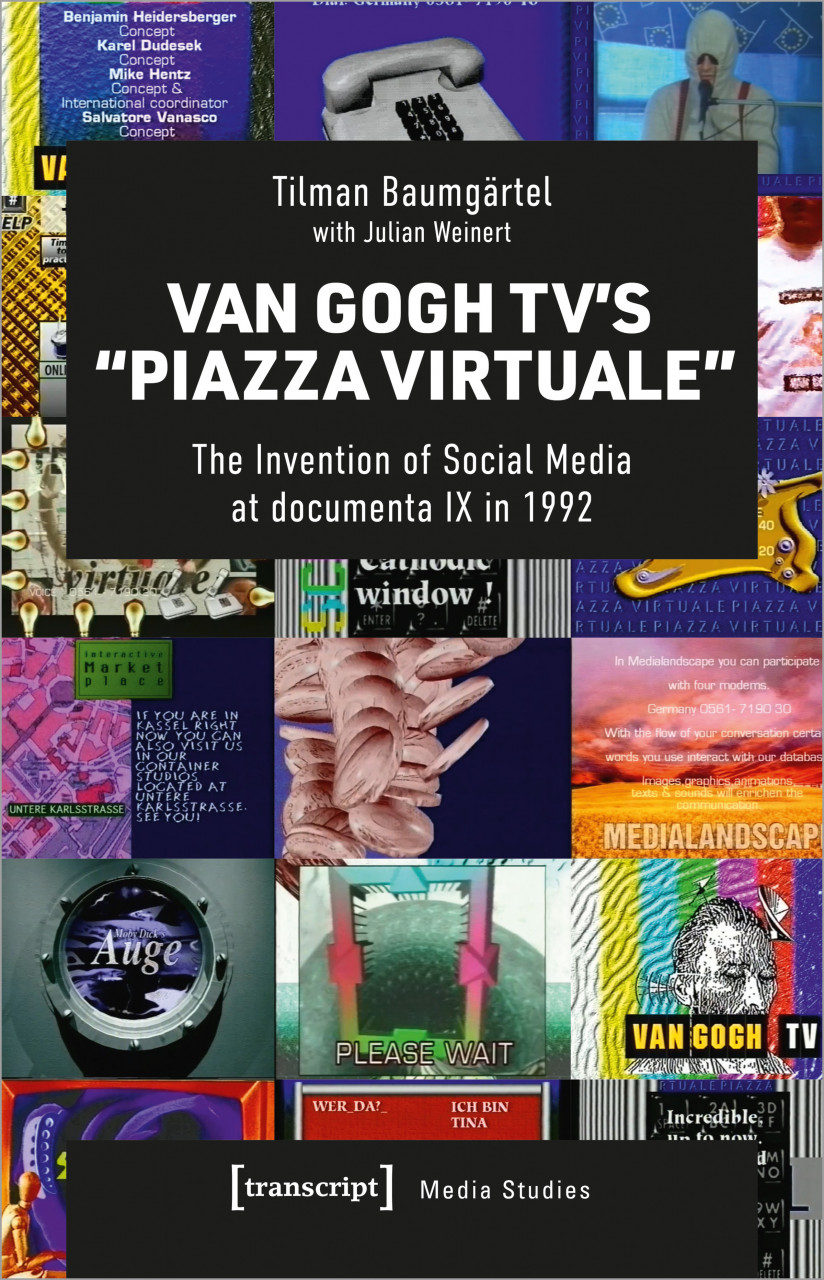
“Piazza virtuale by the group of artists known as Van Gogh TV was not only the biggest art project ever to appear on television, but from a contemporary point of view the project was also a forerunner of today’s social media. The ground-breaking event that took place during the 100 days of documenta IX in 1992 was an early experiment with entirely user-created content. This is the first book-length study of this largely forgotten experiment: it documents the radicality of Piazza virtuale‘s approach, the novel programme ideas and the technical innovations. It also allows, via QR codes, direct access to videos from the show, which until now have been inaccessible.”
Publisher transcript, Bielefeld, December 2021
Media Studies series, 96
Creative Commons BY-NC-SA 4.0 license
ISBN 3837660664, 9783837660661
231 pages
Bálint András Varga: Conversations with Iannis Xenakis (1996)
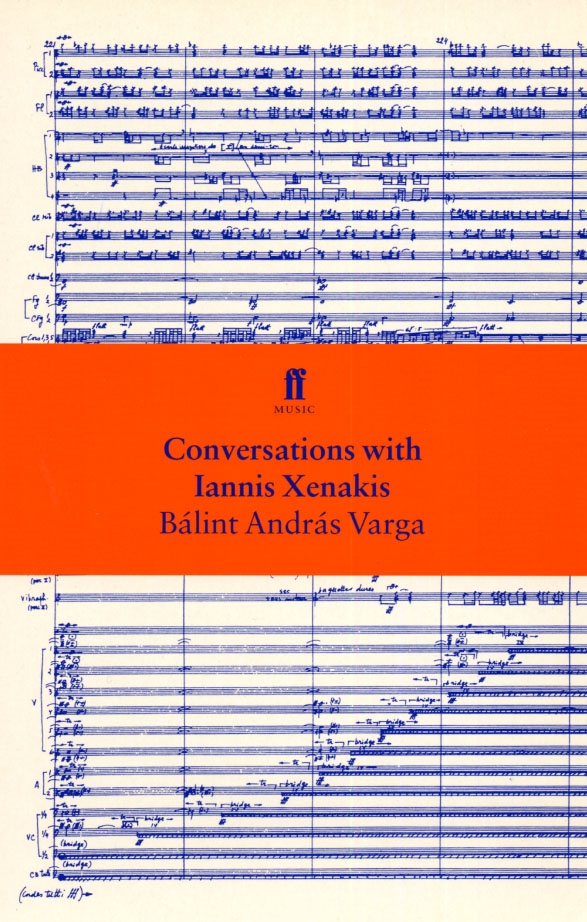
“The music of the Greek-born composer, Iannis Xenakis, has been called brutal and violent. He first studied as an architect, but then turned to composition and put to musical use his knowledge of higher mathematics. In these conversations conducted between 1980 and 1989 he talks about his life and music.”
Publisher Faber and Faber, London, 1996
ISBN 0571179592, 9780571179596
255 pagesReview: Mihu Iliescu (Computer Music Journal, 2000).
Charlotte Johannesson. Take Me to Another World (2021) [EN, ES]
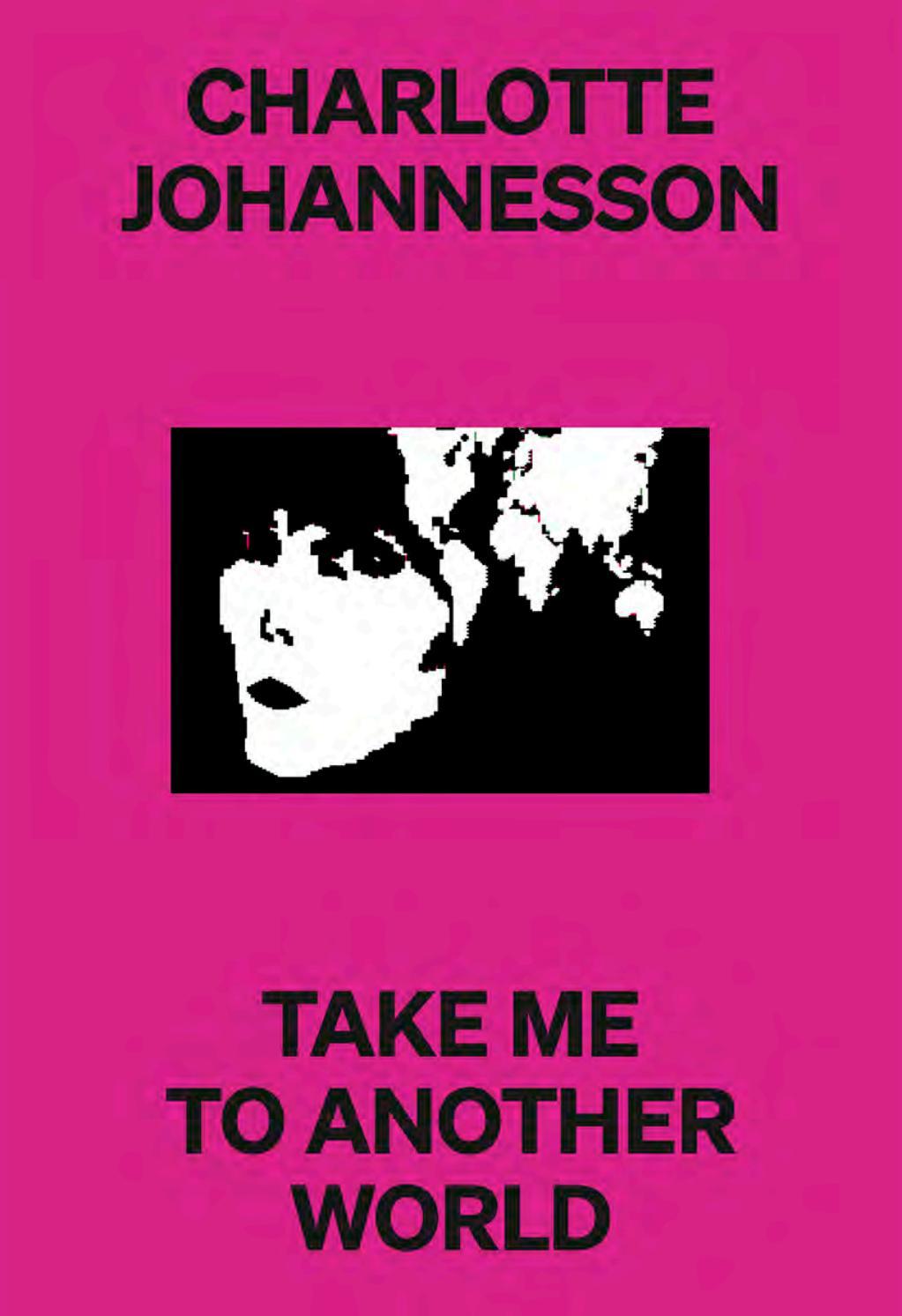
“A key figure of Swedish counterculture and the creator of the first digital arts laboratory in Nordic countries, Charlotte Johannesson has worked primarily with two tools: the artisan technology of the loom and digital IT programming technology, exploring and throwing into relief the connections, both conceptual and methodological, that exist between the two.
Charlotte Johannesson. Take Me to Another World renders an account of the meticulous research process around colour and line that the artist executes in her textile and digital practice. It also spotlights the contribution of Danish writer and artist Amalie Smith, who set up a dialogue between Johannesson’s career and her own present-tense narrative. Furthermore, the publication incorporates an interview conducted with the artist in 2012, re-edited and translated for this occasion.”
Publisher Museo Reina Sofía, Madrid, 2021
Creative Commons BY-NC-ND 4.0 License
ISBN 9788480266246, 8480266244
172 pages
Janneke Adema: Living Books: Experiments in the Posthumanities (2021)
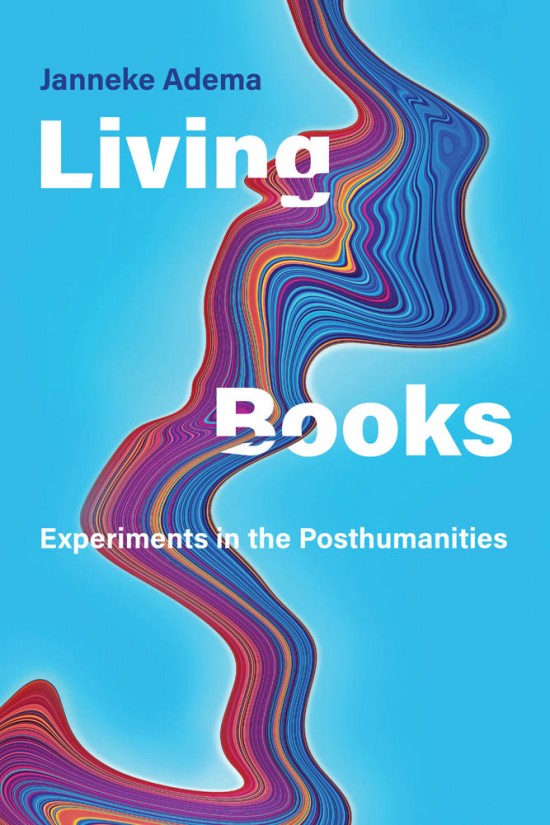
“Reimagining the scholarly book as living and collaborative—not as commodified and essentialized, but in all its dynamic materiality.
In this book, Janneke Adema proposes that we reimagine the scholarly book as a living and collaborative project—not as linear, bound, and fixed, but as fluid, remixed, and liquid, a space for experimentation. She presents a series of cutting-edge experiments in arts and humanities book publishing, showcasing the radical new forms that book-based scholarly work might take in the digital age. Adema’s proposed alternative futures for the scholarly book go beyond such print-based assumptions as fixity, stability, the single author, originality, and copyright, reaching instead for a dynamic and emergent materiality.
Adema suggests ways to unbind the book, describing experiments in scholarly book publishing with new forms of anonymous collaborative authorship, radical open access publishing, and processual, living, and remixed publications, among other practices. She doesn’t cast digital as the solution and print as the problem; the problem in scholarly publishing, she argues, is not print itself, but the way print has been commodified and essentialized. Adema explores alternative, more ethical models of authorship; constructs an alternative genealogy of openness; and examines opportunities for intervention in current cultures of knowledge production. Finally, asking why it is that we cut and bind our research together at all, she examines two book publishing projects that experiment with remix and reuse and try to rethink and reperform the book-apparatus by taking responsibility for the cuts they make.”
Publisher MIT Press, August 2021
Leonardo series
Creative Commons BY-NC 4.0 International License
ISBN 9780262046022, 0262046024
xiii+335 pagesInterview with author: Erzsébet Tóth-Czifra (Dariah Open, 2021).
David Graeber, David Wengrow: The Dawn of Everything: A New History of Humanity (2021)
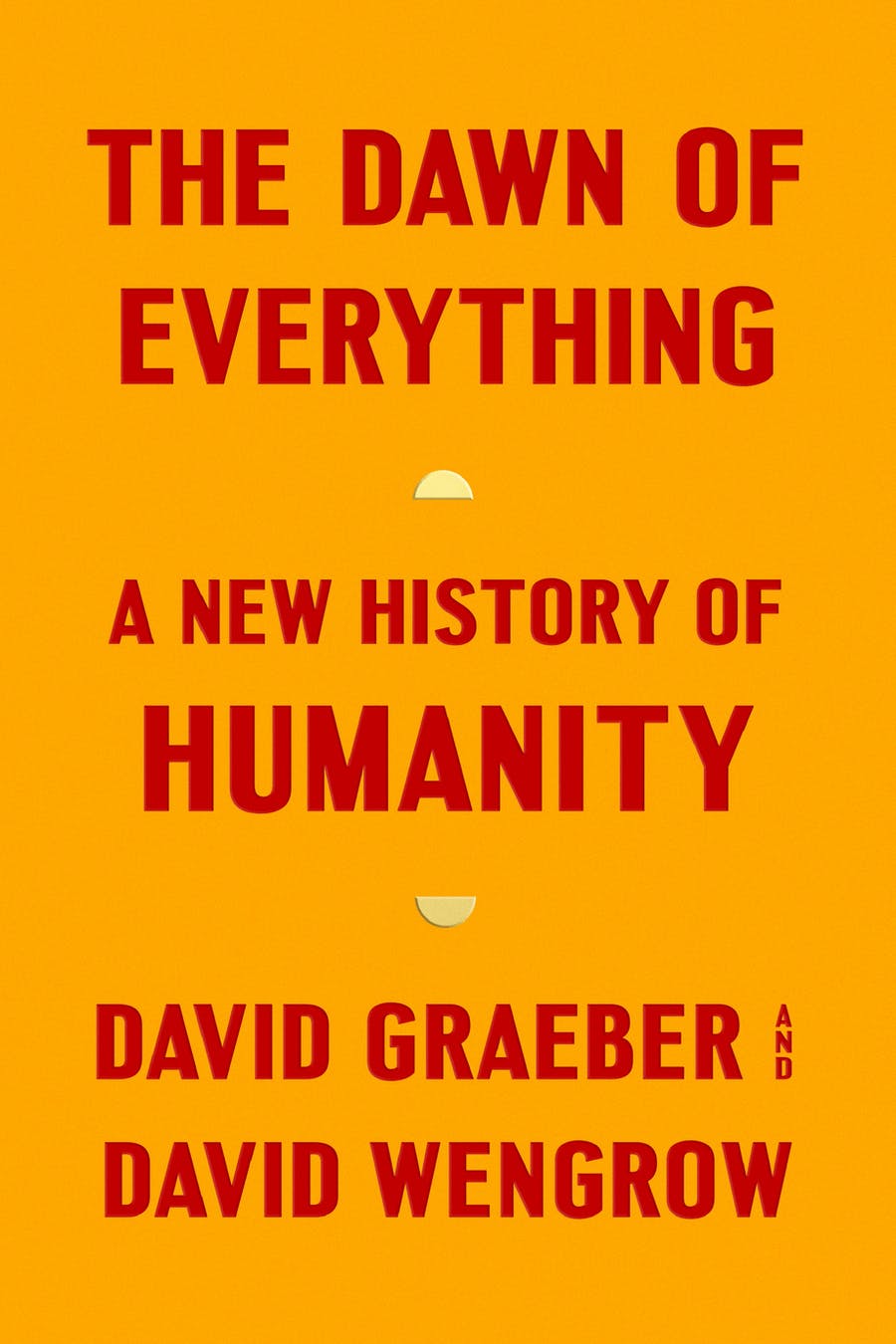
“For generations, our remote ancestors have been cast as primitive and childlike–either free and equal innocents, or thuggish and warlike. Civilization, we are told, could be achieved only by sacrificing those original freedoms or, alternatively, by taming our baser instincts. David Graeber and David Wengrow show how such theories first emerged in the eighteenth century as a conservative reaction to powerful critiques of European society posed by Indigenous observers and intellectuals. Revisiting this encounter has startling implications for how we make sense of human history today, including the origins of farming, property, cities, democracy, slavery, and civilization itself.
Drawing on research in archaeology and anthropology, the authors show how history becomes a far more interesting place once we learn to throw off our conceptual shackles and perceive what’s really there. If humans did not spend 95 percent of their evolutionary past in tiny bands of hunter-gatherers, what were they doing all that time? If agriculture, and cities, did not mean a plunge into hierarchy and domination, then what kinds of social and economic organization did they lead to? The answers are often unexpected, and suggest that the course of human history may be less set in stone, and more full of playful, hopeful possibilities, than we tend to assume.”
Publisher Farrar, Straus and Giroux, November 2021
ISBN 9780374157357, 0374157359
xii+692 pagesReviews: William Deresiewicz (The Atlantic, 2021), Giulio Ongaro (Jacobin/Tribune, 2021), Jennifer Schuessler (The New York Times, 2021), Kwame Anthony Appiah (The New York Review, 2021), David Priestland (The Guardian, 2021), Emily Kern (Boston Review, 2021), Steve Rushton (Bella Caledonia, 2021), George Scialabba (New Republic, 2021), Chris Knight, Nancy Lindisfarne and Jonathan Neale (Monthly Review, 2021), Tunku Varadarajan (Wall Street Journal, 2021), Erle C. Ellis (Science, 2021), Peter Isackson (Fair Observer, 2021), Noah Berlatsky (NBC News, 2021), Annalee Newitz (Washington Post, 2021), Matthew Porges (LA Review of Books, 2022), Richard Handler (TLS, 2022), anon. (Astral Codex Ten, 2022), Milena Bartlová (A2larm, 2022, CZ), Joe Gill (Middle East Eye, 2023), more.
Daniel Fairfax: The Red Years of Cahiers du cinéma, 1968-1973, 2 vols. (2021)

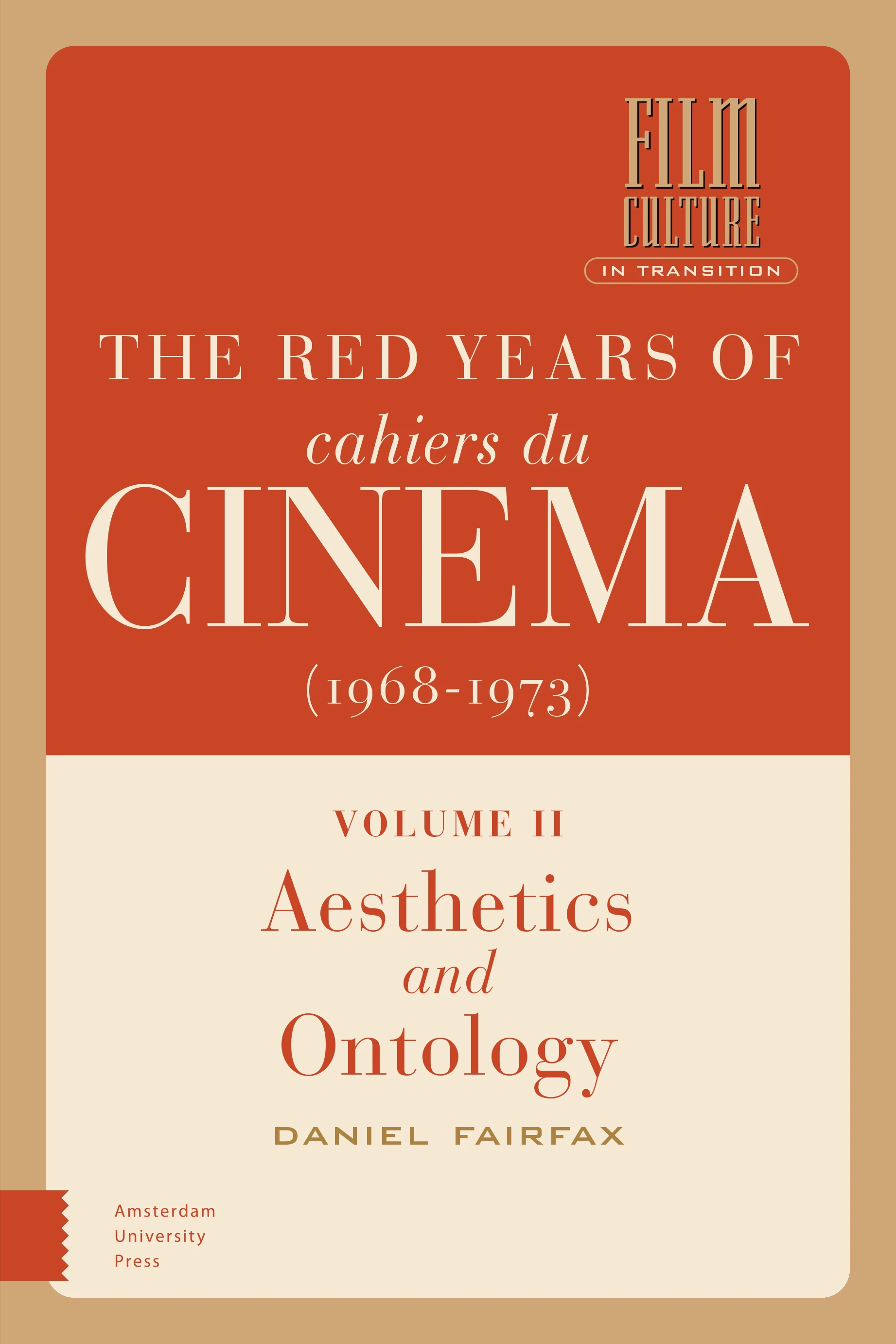
“The uprising which shook France in May 1968 also had a revolutionary effect on the country’s most prominent film journal. Under editors Jean-Louis Comolli and Jean Narboni, Cahiers du cinéma embarked on a militant turn that would govern the journal’s work over the next five years. Inspired by Marxist and psychoanalytic theory, the “red years” of Cahiers du cinéma produced a theoretical outpouring that was seminal for the formation of film studies and is still of vital relevance for the contemporary audiovisual landscape.
The Red Years of Cahiers du Cinéma (1968-1973) gives an overview of this period in the journal’s history and its aftermath, combining biographical accounts of the critics who wrote for Cahiers in the post 1968 period with theoretical explorations of their key texts.”
Publisher Amsterdam University Press, Amsterdam, 2021
Film Culture in Transition series
ISBN 9789048543908 (vol. 1), 9789048543915 (vol. 2)
427 & 455 pages
HT Quentin DarcqPublisher (vol. 1)
Publisher (vol. 2)
OAPEN (vol. 1)
OAPEN (vol. 2)
WorldCat (vol. 1)
WorldCat (vol. 2)Volume I, Ideology and Politics: PDF, PDF
Volume II, Aesthetics and Ontology: PDF, PDFSee also: Cahiers du Cinéma, vols. 1–4.
CENSE Almanac: Central European Network for Sonic Ecologies (2021)
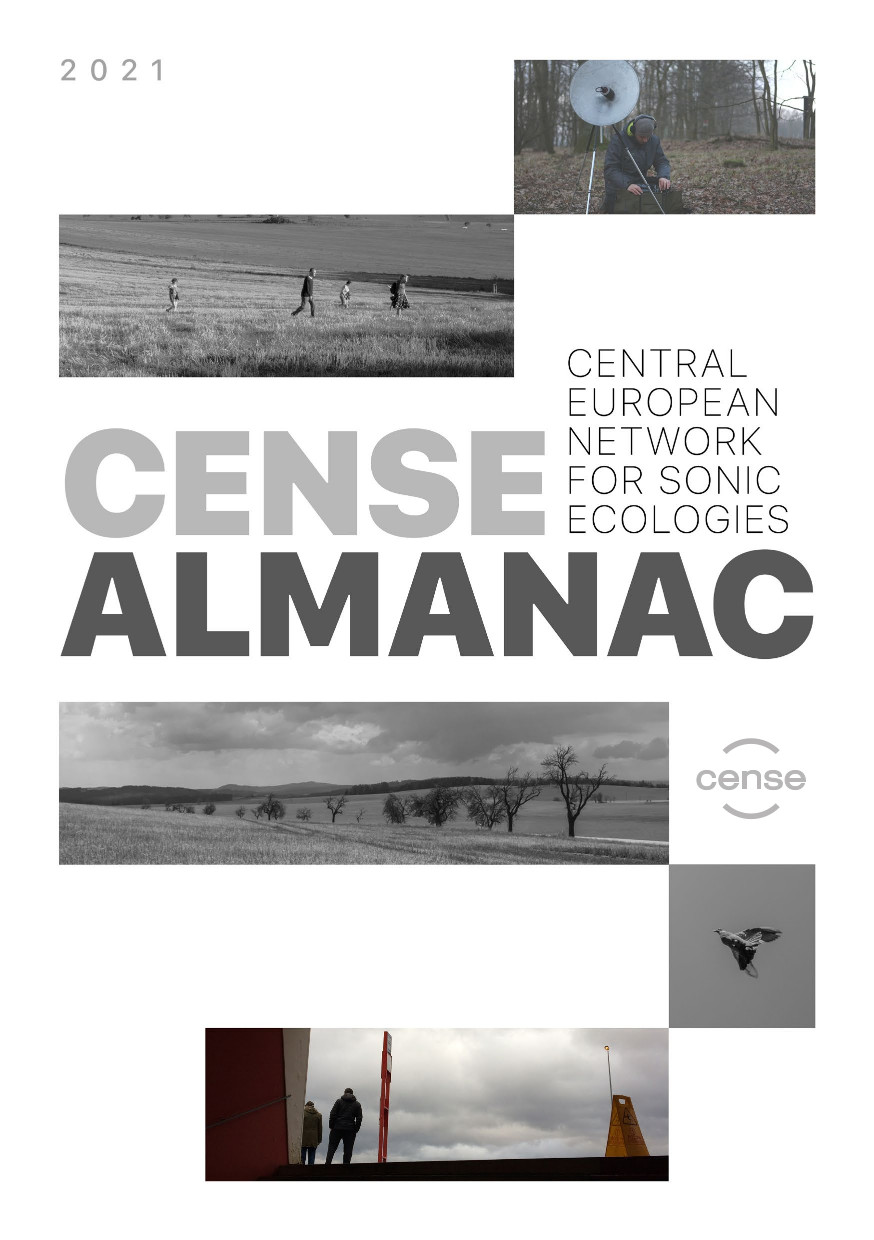
“The Central European Network for Sonic Ecologies (CENSE) is an informal network of individual voices coming from various backgrounds. We propose this emerging network to fill the need of fostering more perceptive and conscious thinking and solutions, addressing developments in the social and cultural fields of Central Europe (and beyond) related not only to sound art, ecomusicology, and sound per se, while keeping a central focus on deep environmental and social changes.”
Its first publication features a survey of CENSE members and friends about sonic ecology, offering a springboard for the formation of a framework; a mind map composed of the various ideas, statements, positions, and attitudes of around thirty people. In addition, three essays on the story of environmental sound in Czechoslovakia, Poland and Hungary are included.”
Editor: Miloš Vojtěchovský and Lloyd Dunn
Publisher CENSE, November 2021
Creative Commons Attribution NonCommercial ShareAlike 4.0 Unported License
80 pages
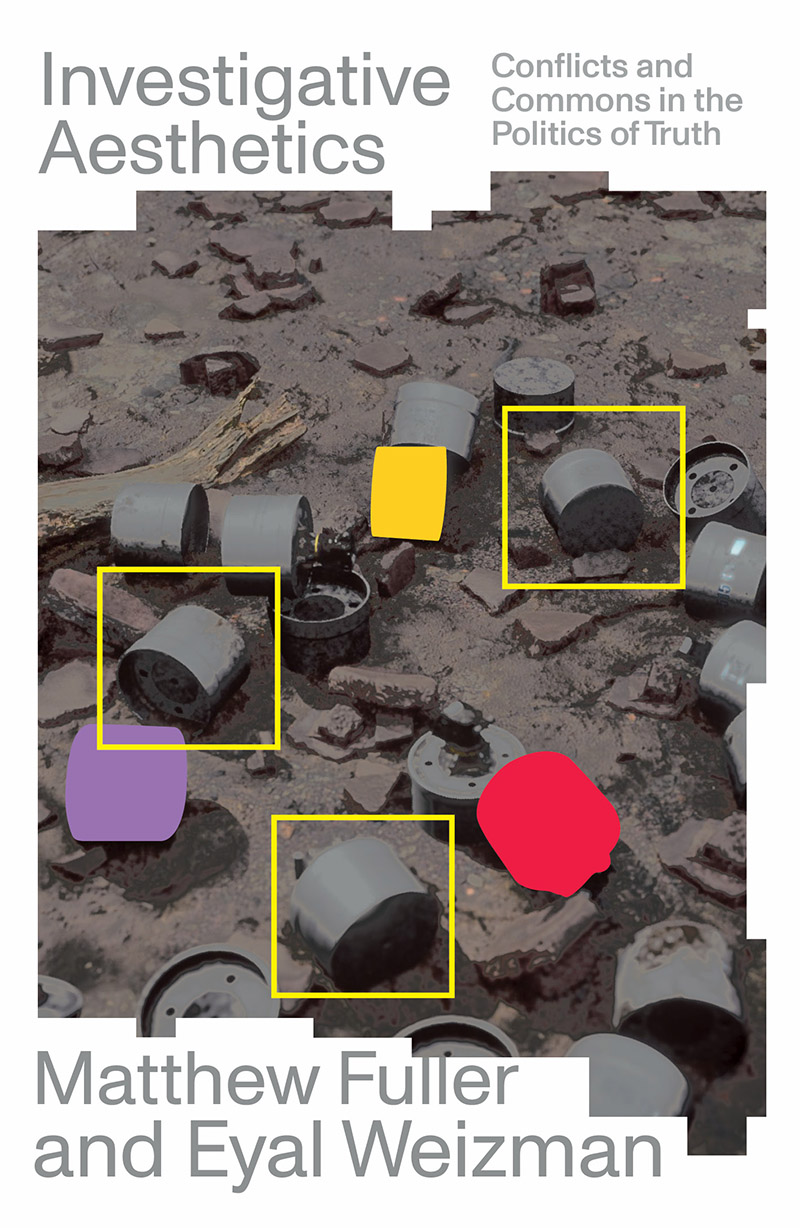
“A new field of counterinvestigation in journalism, human rights, art and law
Today, artists are engaged in investigation. They probe corruption, human rights violations, environmental crimes and technological domination. At the same time, areas not usually thought of as artistic make powerful use of aesthetics. Journalists and legal professionals pore over opensource videos and satellite imagery to undertake visual investigations. This combination of diverse fields is what the authors call “investigative aesthetics”: the mobilisation of sensibilities associated with art, architecture and other such practices in order to speak truth to power.
Investigative Aesthetics draws on theories of knowledge, ecology and technology; evaluates the methods of citizen counter-forensics, micro-history and art; and examines radical practices such as those of WikiLeaks, Bellingcat, and Forensic Architecture. These new practices take place in the studio and the laboratory, the courtroom and the gallery, online and in the streets, as they strive towards the construction of a new common sense.
Matthew Fuller and Eyal Weizman have here provided an inspiring introduction to a new field that will change how we understand and confront power today.
To Nour Abuzaid for your brilliance, perseverance, and unshaken belief in the liberation of Palestine.”
Publisher Verso Books, London, August 2021
ISBN 9781788739085, 1788739086
259 pagesReview: Chris Hayes (Tribune, 2021).
EPUB (updated on 2022-11-21)

















































